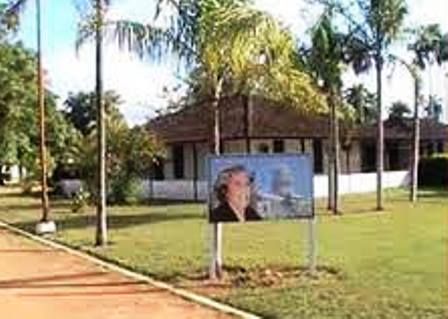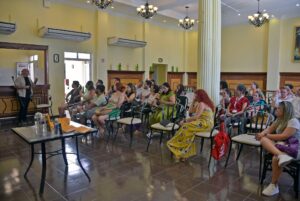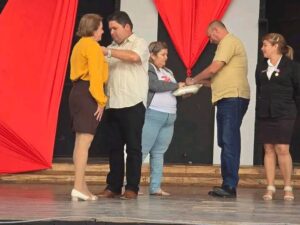The Center for Environmental Engineering and Biodiversity of Ciego de Avila (Ciba), located in Morón, carried out actions that supported the development of priority sectors of the economy and the fulfillment of the Cuban State Plan to Confront Climate Change (Tarea Vida) during the year just ended.
In exclusive statements for the Cuban News Agency (ACN), Master of Science Yamilé Jiménez Peña, director of this institution subordinated to the Environment Agency of the Ministry of Science, Technology and Environment, highlighted the integration of university centers and companies to contribute to territorial progress.
They advised various economic actors to set up local development projects linked, fundamentally, to the agri-food area, which included research on the productive increase of sunflower crops through the use of beneficial native microorganism technology.
In addition, contributions were made to crop diversification, in response to the Food Sovereignty and Nutritional Education Program; actions to conserve soils through agroecological practices; and capacity building in the agricultural sector, in coordination with other scientific centers and the University of Avila.
Environmental diagnoses were carried out in the basic business units (UEB) Canteras Chambas, Frutales Sur, Industria Procesadora y Alevinaje de Morón, belonging to the companies Materiales de la Construcción, Agroindustrial Ceballos and Pesquera Industrial de Ciego de Ávila (EPIVILA), respectively.
Ciba experts participated in working groups for the conformation, evaluation and follow-up of the Environmental Contamination and Biodiversity projects, which are part of the Natural Resources and Environment Macro-program, in turn integrated to the National Program for Economic and Social Development until 2030.
As members of the technical advisory councils of the municipality of Morón and the province of Avila, they shared their experiences and addressed key issues to promote scientific development at the local level, he said.
Ciba has an important participation in the international project Coastal Resilience, which promotes an integrated vision of disaster risk reduction and adaptation to climate change in the socioeconomic development planning of vulnerable coastal municipalities in central-northern Cuba, including Chambas, in northwestern Ciego de Avila.
Called Biofood Research Center until 2022, Ciba reached its 31st anniversary last July 17, with multiple national and international recognitions for its performance in terms of sustainable progress in strategic areas of the economy. (Written by Román Romero López)




